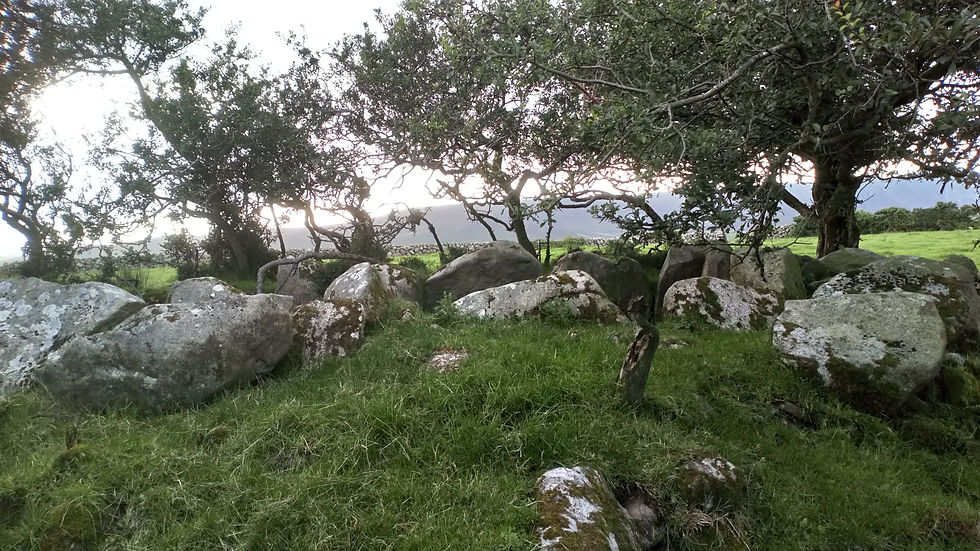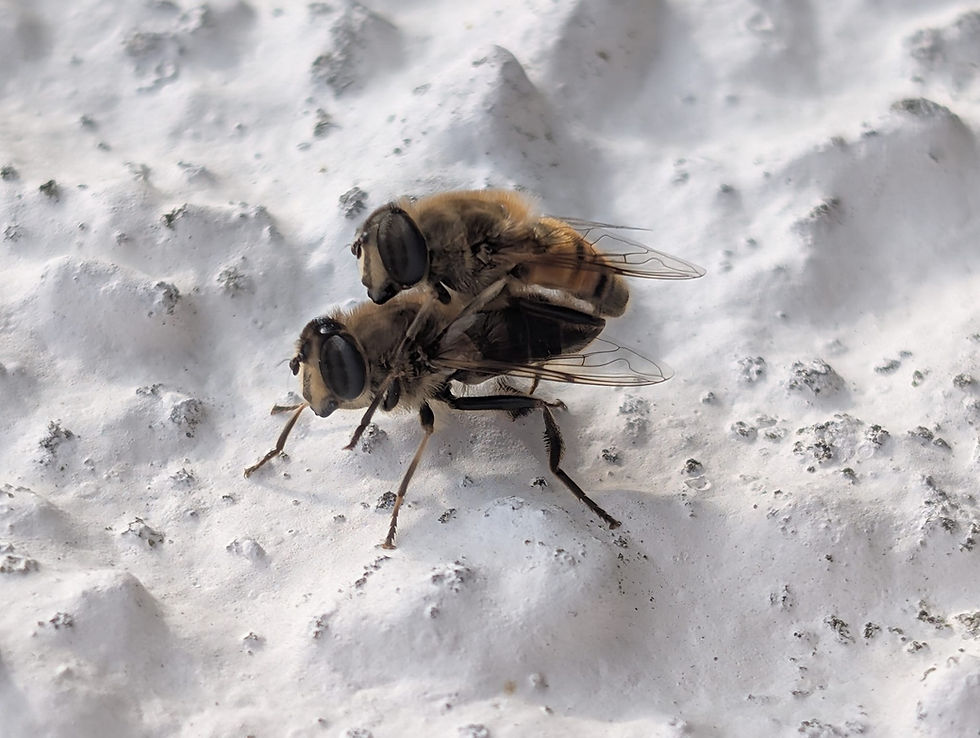'Rushes Cave' Court Tomb, Attical
- @F_i_l_i

- Aug 18, 2019
- 2 min read

This Court Tomb is located in the corner of a field just West of the B27 as it begins to descend into Kilkeel, close to the hamlet of Attical where the Aughrim River begins.
It is currently overgrown by thorn trees which gives it a slightly forgotten feel, but this perhaps also offers a little protection against livestock! The monument is located at one end of a larger rectangular scheduled area close to the field boundary. I wondered if a couple of large piles of stones nearby might originally have been cairnstones. It's possible that a new (and very nice!) dry stone wall to the East may also have made use of some of these.

The grave is roughly 10 metres long running North/South facing down the valley with views to the Mournes (North) and the sea to the South. A standing stone nearby apparently disappeared sometime after the 1930's Ordnance Survey. The 'Giant's Grave' Court Tomb, a 4 chambered State Care Monument, is not far away just outside Kilkeel; and a Portal Tomb named the 'Crawtree Stone' is protected by a scheduled area within in the town. A nearby street, 'Cromlech Park' apparently takes its name from the monument and archaeological monitoring of works to create a car park near the site of this dolmen took place in 2003. However, the following was noted during this process:

I've not managed to view this dolmen using Google Earth, but a visit might be nice anyway.
However, I digress, back to the lovely tomb at Attical....

The grave is divided into three segments, and some of the larger boulders scattered around are believed to have been 'roofing stones'.


The 'field wall' mentioned above has now been replaced by a wire fence.


A farmer living nearby described how he had only visited the site once as a child, and that 'that cave has been there for a brave long time'... Of interest to me is the fact that he used the word 'cave' in relation to the monument as opposed to 'cove', as it is titled on some of the SMR documents. Presumably the word 'cave' reflects local memory of a time when the 'roof' was intact.
Hopefully it will remain as it is for many years to come!



Comments